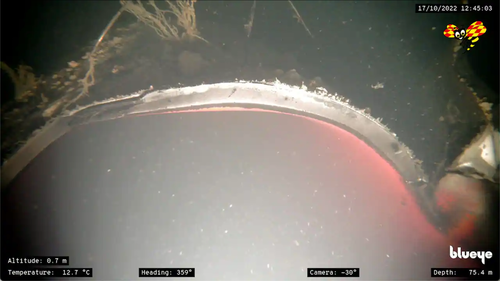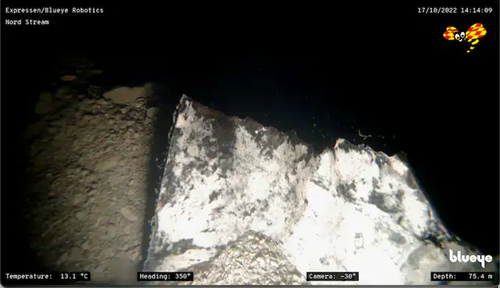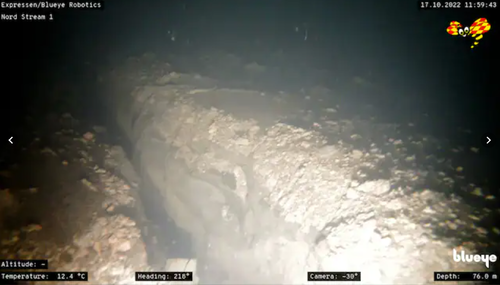This article was originally published by Tyler Durden at ZeroHedge.
Two subsea pipelines connecting Russia and Germany were blown up last month. The explosions were so powerful that Swedish and Danish authorities said seismic devices in the Baltic Sea region recorded the magnitude of those explosions around M2.3 and M2.1.
EU authorities have guesstimated an explosive load of “several hundred kilos” to destroy Nord Stream pipelines, which triggered four leaks at four locations — two in Denmark’s waters and two in Sweden’s waters.
Almost a month later, neither EU leaders nor Western intelligence agencies can concretely say who blew up NS1 and NS2 in the backyard of NATO. New footage has surfaced of the blown-up undersea pipeline that is more than 80 meters below the surface of the Baltic Sea.
Swedish newspaper Expressen has secured the first public images of the heavily damaged pipelines. They say one section of the pipeline is missing 50 meters of concrete-reinforced steel pipe.
Norwegian company Blueye Robotics operated the underwater drone and captured these images:
Opening to the NS1 pipe that was blown apart in an explosion.

Mangled Pipeline

“A deep grave in the seabed where the gas pipeline used to be, “Expressen said.

Here’s a video of the underwater drone exploring the badly damaged pipeline.
Blueeye footage of the damaged Nord Stream pipeline> pic.twitter.com/cLwFKMnmgN
— Guy Faulconbridge (@GuyReuters) October 18, 2022
For context, Bloomberg’s Javier Blas provided specs on the pipes used in NS… He said the NS pipe is very strong.
How strong is a Nord Stream pipe? Quite!
The steel pipe itself has a wall of 4.1 centimeters (1.6 inches), and it’s coated with another 6-11 cm of steel-reinforced concrete. Each section of the pipe weighs 11 tonnes, which goes to 24-25 tonnes after the concrete is applied. pic.twitter.com/BFYnv36CaF
— Javier Blas (@JavierBlas) September 27, 2022
Now we’ve seen the first images of the Nord Stream damage. One can only imagine that weapons of serious size were used to vaporize entire sections of the pipeline.
Source link
Author Tyler Durden






